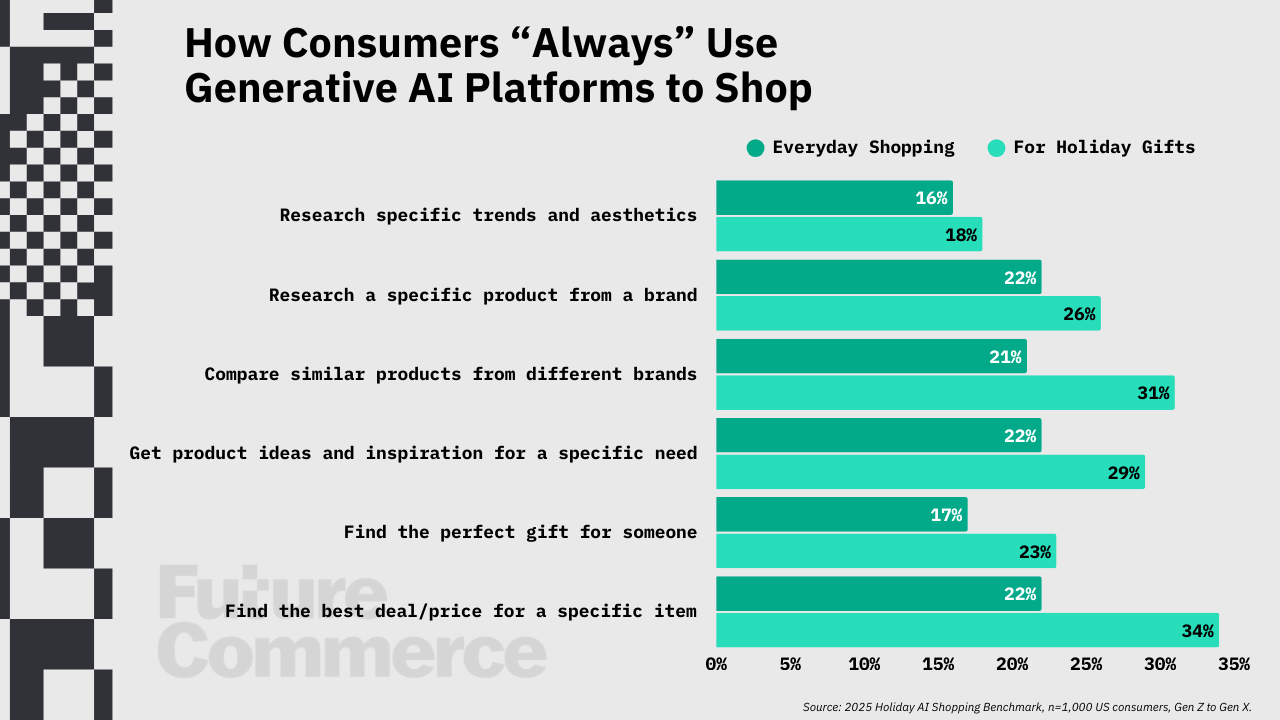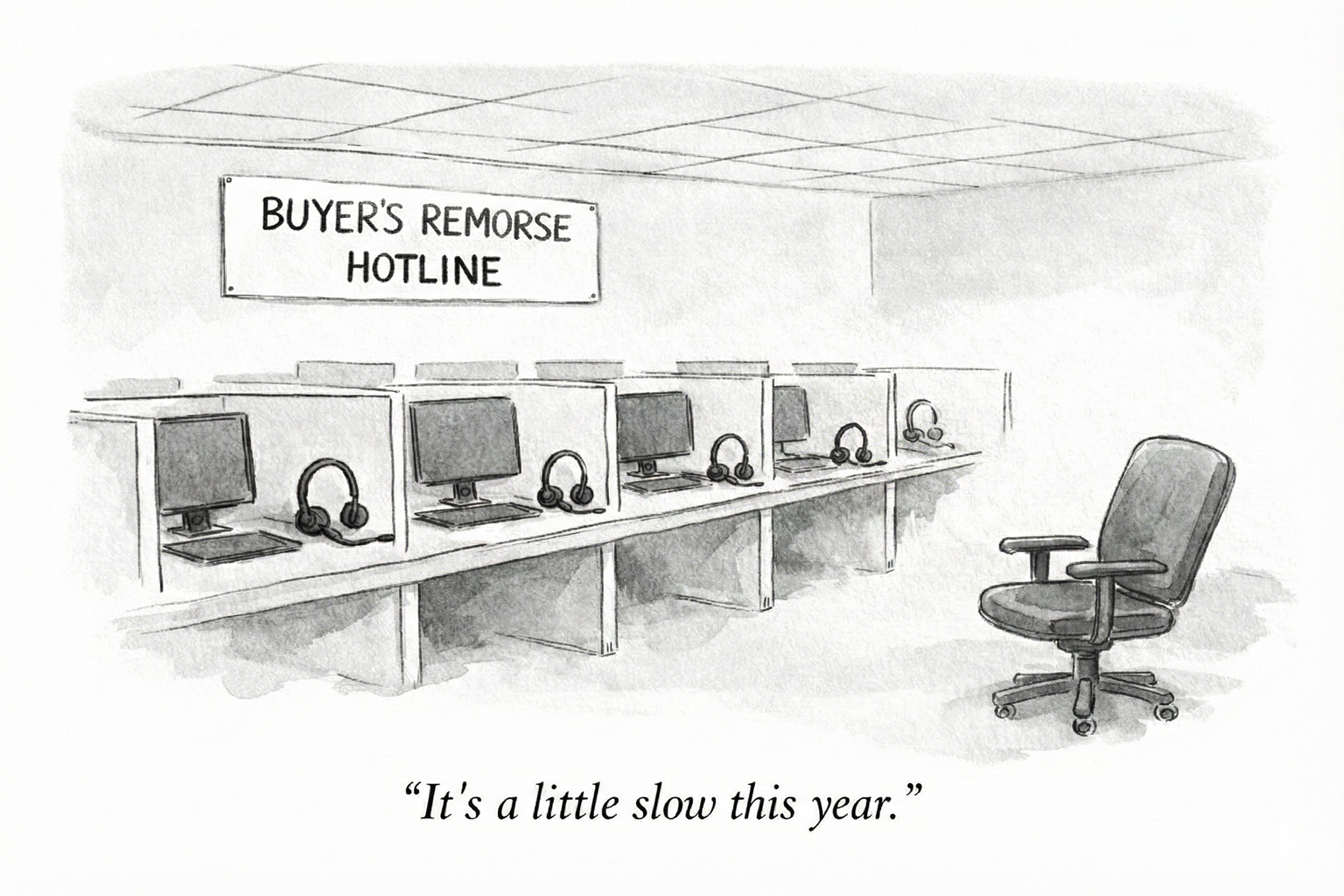
Google’s Secret Plan to Regain Your Trust in Reviews


I don’t trust product reviews, and neither do you. Neither does the FTC.
Back in July, the FTC announced that fines would be levied against retailers publishing fake reviews; a space that is growing rapidly thanks to generative AI products like ChatGPT, which can convincingly generate dozens of reviews with little effort.
The renewed focus comes as generative AI is deepening a hole dug by a thriving black market for online reviews. Why does this market exist? Because brands and retailers know that customers form judgment about products based solely on star rating.
“[Customers are] predisposed to disliking a product if it's one star — or liking the product if it's five stars,” says Jared Watson, Professor of Marketing at NYU’s Stern School of Business.
In light of this sentiment shift in online reviews, Google unveiled their grand scheme to overhaul reviews, shifting away from the reviews product as a function of eCommerce; and instead focusing on the nature of critique across a variety of industries.
Until now, Google’s laser-focus on Commerce for reviews left some businesses out in the cold. While eCommerce is the darling of Google’s commercial model — after all, ads drive purchase decisions, and those conversions can be easily measured — many other businesses that benefit from indirect commercial benefits of reviews were left without clear guidelines for quality.
Service-based business, media (like gaming and movies) and destinations had little guidance on how to drive search engine traffic by using reviews as a strategy. And that very change in focus is now changing how eCommerce retailers engage with reviews.
This week, online computer parts retailer Newegg announced the release of a shift in their review strategy. Their product — SummaryAI — aims to pull the sentiment data from reviews into a more nuanced overview of review content. This surfaces potential issues and benefits in a way that the five-star system cannot; while simultaneously avoiding the pitfalls of a retailer mistakenly highlighting a fake review.
SummaryAI divides sentiment into two sections — ”Bytes” and “Pros and Cons” — allowing a customer to see overall benefits and drawbacks at a glance.
The drawback? In order for products to gain the SummaryAI feature box, it must first reach a critical mass of reviews. And therein lies the conundrum — early sentiment is set well before a contextual AI engine can combat distrust.
“When we look to any source of information, there's some element of human touch which leads to either bias in the reporting of that bias, in the interpretation of that,” says Watson. “If you step back 50, 40, even 30 years ago, we were still very much in that mindset [to] find the few that have the closest preferences to myself to inform my decisions. And the shift to the wisdom of the crowd [happened] fairly recently.”
For the next generation, that crowd-sourced wisdom today is coming through TikTok and Youtube Shorts, not just Google.
The more things change, the more they stay the same.
— Phillip
P.S. Have you ever noticed that there’s always room for another appliance in your home? We break down this phenomenon, and throw some shade at Instapot, in this season’s penultimate episode of Infinite Shelf, hosted by Ingrid Milman Cordy and Orchid Bertelsen.


Baggu Girlies. Baggu, a reusable bag company, is a hit among Gen Zers who collect and flaunt the colorful prints wherever they can. The company started in 2007 and got a huge boost when it got a full-page spread in the August issue of Teen Vogue that same year. At that point, teen girls were the brand’s biggest customer, but now Gen Z has fallen in love with the bags and TikTok is spreading the word with popular videos of “What’s in my Baggu.”
Live, at Ulta. Ulta has entered a partnership with livestream shopping platform, Buywith. I anxiously await the quiet retirement of this partnership in 24 months.


DTC Goes Wholesale. DTC jewelry brand, Aurate, has entered into its first wholesale partnerships with Helzberg Diamonds and Macy’s. This move comes after the company closed its own physical stores.
Pre-Retail Theft. Nike sneakers are struggling to get from its factories to its storefronts, as theft is high, specifically for Air Jordans. Organized crime groups are targeting warehouses and trucks in efforts to steal and resell the shoes.


Soup’s On. Campbell Soup is buying Sovos Brands, which owns Rao’s, for $2.33 billion. The soup company is paying $23 a share, and while Sovos’ shares increased 24.3% at the news, Campbell’s dropped 1.9%.
The Fight for Taco Tuesday. For 34 years, the phrase “Taco Tuesday” has been trademarked by Taco Johns. However, in May, Taco Bell filed a petition with the US Patent and Trademark Office to have the trademark canceled. Taco Bell recently won out and is now celebrating the phrase “liberation” by giving away free tacos nationwide. The state of New Jersey will be the only place this celebration will not take place and free tacos will not be given out, as one restaurant owner there is still fighting to hold onto the trademark at the state level.


Mall No More? A 40-year-old Florida suburban shopping mall is set to be leveled for new housing. The challenge now is to collaborate with potential buyers to ensure the new development benefits the local community.











.svg)
